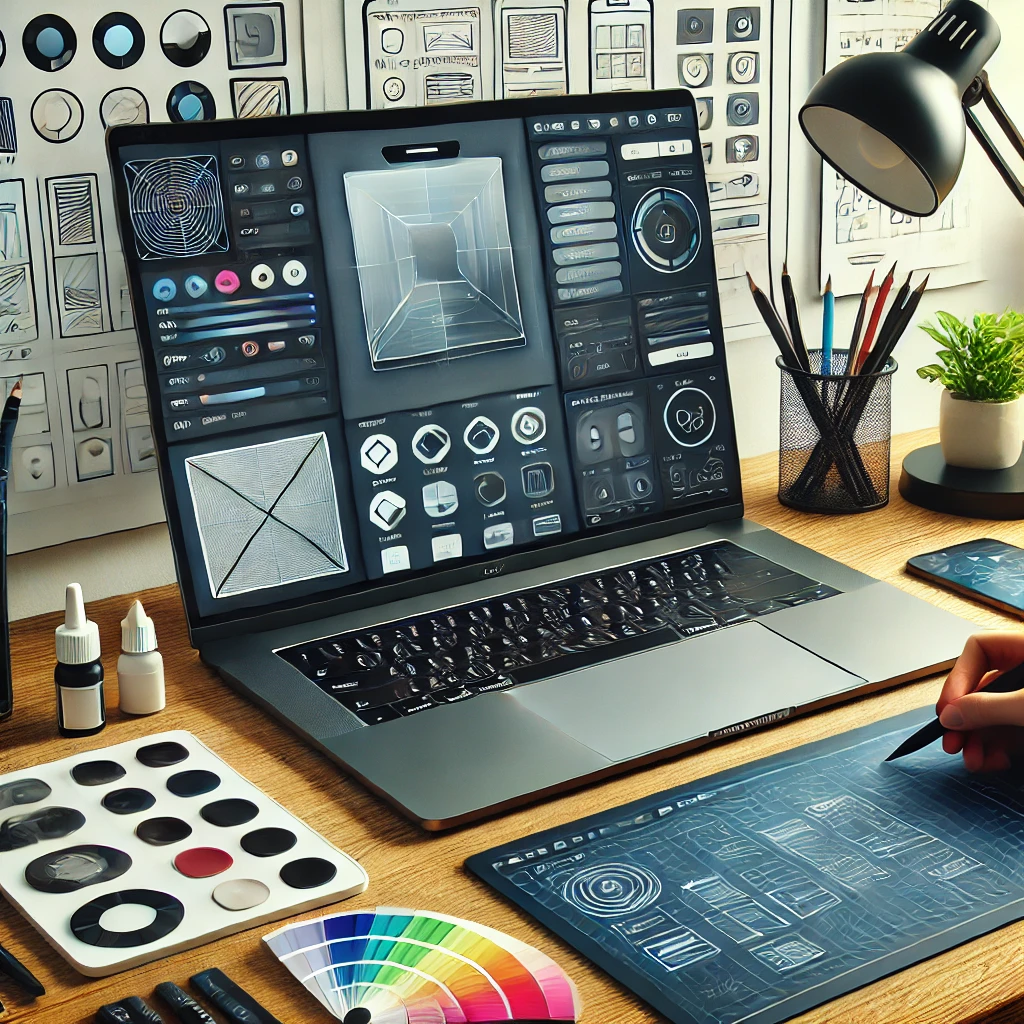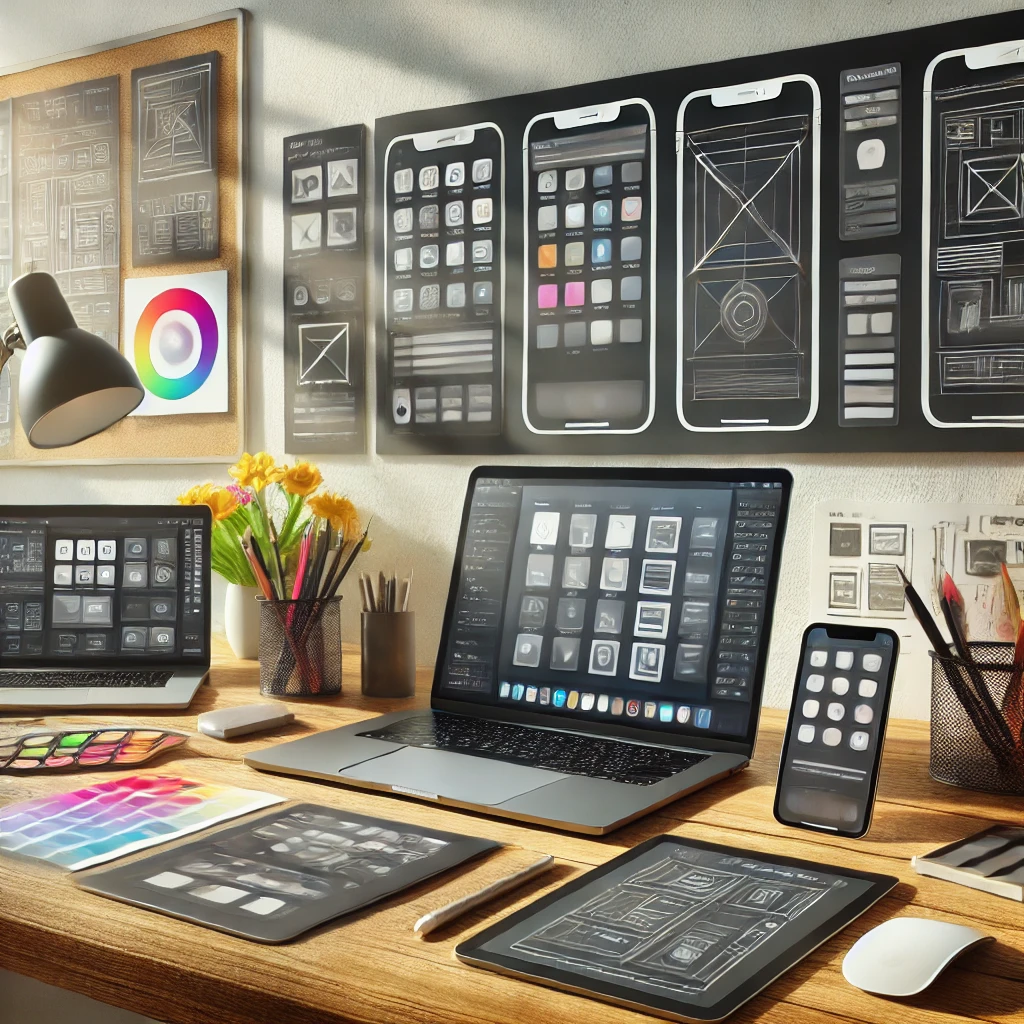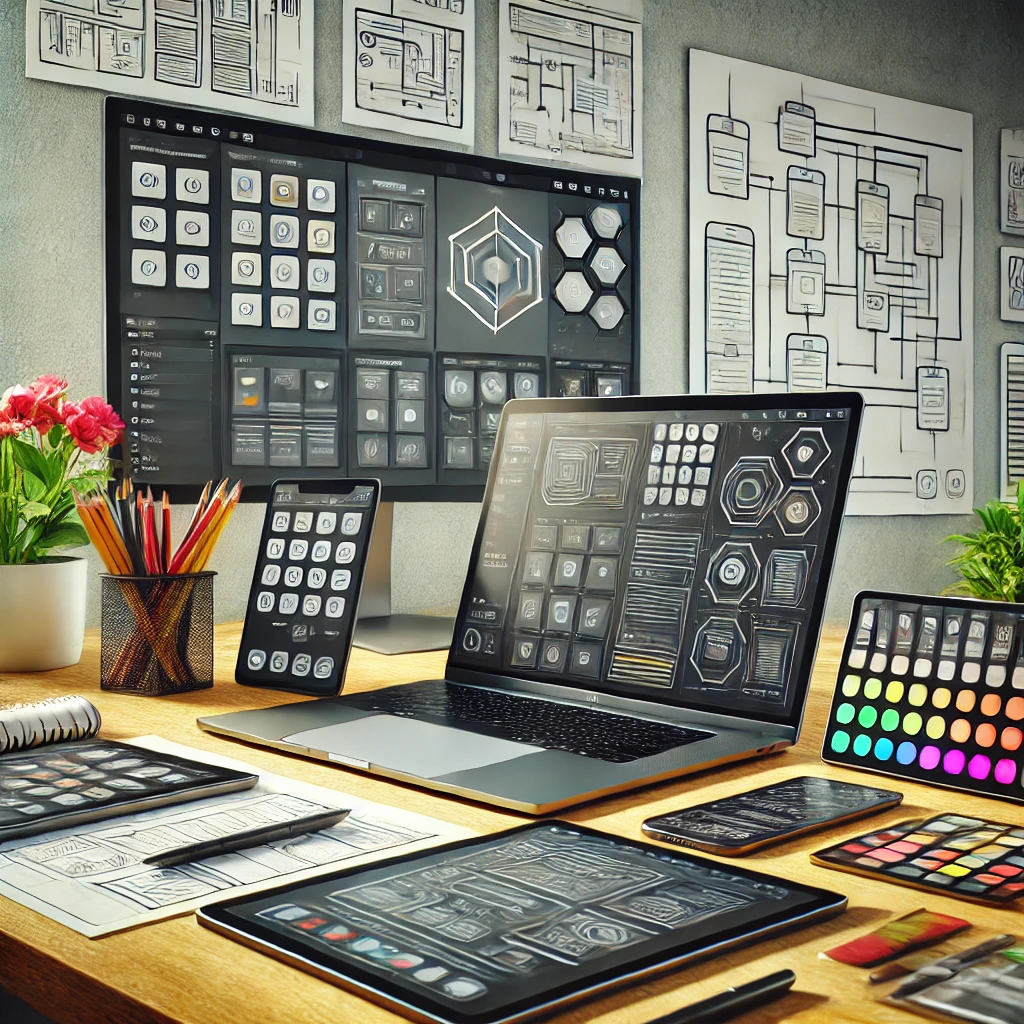Best App Design Software: Tools for Creating Stunning User Interfaces

Why Good App Design Matters
Before we dive into the software options, let’s quickly recap why app design is crucial:
- First Impressions: Users often decide whether to keep or delete an app within the first few seconds of use.
- User Experience: A well-designed interface makes your app intuitive and enjoyable to use.
- Brand Identity: Your app’s design communicates your brand’s personality and values.
- Competitive Edge: In a crowded app market, great design helps your app stand out.
Now, let’s explore the best app design software options available today.
Sketch
Best for: Mac users, UI/UX designers
Sketch has long been a favorite among app designers, especially those working on iOS apps.
Key Features:
- Vector-based design tools
- Extensive plugin ecosystem
- Collaborative features
- Prototyping capabilities
Pros:
- Intuitive interface
- Excellent for icon and UI design
- Strong community and resource base
Cons:
- Mac-only
- Requires a paid subscription
Pricing: Starts at $9/month per editor (billed annually)
Adobe XD
Best for: Designers familiar with Adobe products, cross-platform users
Adobe XD is a versatile tool that works well for both app and web design.
Key Features:
- Vector-based design tools
- Prototyping and animation
- Integration with other Adobe products
- Collaboration features
Pros:
- Available for both Mac and Windows
- Intuitive if you’re familiar with Adobe software
- Regular updates and improvements
Cons:
- Part of Adobe Creative Cloud subscription
- Can have a steeper learning curve for Adobe newcomers
Pricing: Included in Adobe Creative Cloud subscription (starts at $52.99/month), or $9.99/month for single app

Figma
Best for: Collaborative teams, cross-platform users
Figma has gained popularity due to its collaborative features and web-based platform.
Key Features:
- Real-time collaboration
- Web-based (works on any OS)
- Design and prototyping in one tool
- Extensive plugin library
Pros:
- Excellent for team projects
- No need to install software
- Regular feature updates
Cons:
- Requires internet connection for full functionality
- Can be overwhelming for beginners
Pricing: Free for individuals, paid plans start at $12/editor/month (billed annually)
InVision Studio
Best for: Designers focused on creating interactive prototypes
InVision Studio offers powerful animation and prototyping features.
Key Features:
- Advanced animation tools
- Rapid prototyping
- Integration with InVision’s design platform
- Responsive design features
Pros:
- Excellent for creating high-fidelity prototypes
- Intuitive timeline-based animations
- Seamless workflow with InVision’s other tools
Cons:
- Steeper learning curve for complex features
- Can be resource-intensive on older machines
Pricing: Free with InVision account, additional features with paid plans starting at $7.95/month
Axure RP
Best for: UX professionals, complex app projects
Axure RP is known for its ability to create detailed, functional prototypes.
Key Features:
- Advanced prototyping capabilities
- Dynamic content generation
- Conditional logic flows
- Documentation generation
Pros:
- Ideal for complex, data-driven apps
- Creates highly interactive prototypes
- Useful for both UX and UI design
Cons:
- Steeper learning curve
- Interface can feel dated compared to other options
Pricing: Starts at $25/month per user (billed annually)

Marvel
Best for: Beginners, rapid prototyping
Marvel offers a user-friendly platform for quick design and prototyping.
Key Features:
- Simple, intuitive interface
- Built-in user testing
- Integrations with popular tools like Sketch
- Collaboration features
Pros:
- Easy to learn and use
- Great for quick mockups and ideas
- Affordable pricing options
Cons:
- Limited advanced design features
- Not as suitable for complex app designs
Pricing: Free plan available, paid plans start at $12/month
Framer
Best for: Designers who code, interactive prototypes
Framer combines design tools with the power of code for creating highly interactive prototypes.
Key Features:
- Code-based prototyping
- Visual design tools
- Component library
- Integration with design systems
Pros:
- Creates highly realistic prototypes
- Bridges the gap between design and development
- Supports complex interactions
Cons:
- Requires some coding knowledge for advanced features
- Can be overkill for simple app designs
Pricing: Starts at $15/month per editor (billed annually)
Choosing the Right App Design Software
With these options in mind, how do you choose the right software for your app design needs? Consider the following factors:
- Your Skill Level: Are you a beginner, intermediate, or advanced designer?
- Project Complexity: Are you designing a simple app or a complex, data-driven platform?
- Collaboration Needs: Will you be working with a team or solo?
- Budget: What’s your budget for design tools?
- Platform: Are you designing for iOS, Android, or both?
- Integration: Does the tool need to integrate with other software you use?

Tips for Getting Started with App Design Software
Whichever tool you choose, here are some tips to help you get started:
- Take Advantage of Tutorials: Most of these tools offer extensive tutorials and documentation. Use them!
- Start with Templates: Many app design tools offer templates. These can be great learning resources and starting points.
- Join Community Forums: Each of these tools has an active community. Joining these can provide support and inspiration.
- Practice Regularly: Like any skill, app design improves with practice. Try to use your chosen tool regularly.
- Stay Updated: Follow blogs and social media accounts related to your chosen tool to stay informed about new features and best practices.

Conclusion: The Best Tool is the One You'll Use
Remember, the “best” app design software is ultimately the one that fits your needs and workflow. Don’t be afraid to try out a few options before settling on your preferred tool. Many of these software options offer free trials, so take advantage of those to find your perfect fit.
Great app design is a combination of the right tools and your creativity. With these powerful app design software options at your fingertips, you’re well-equipped to create stunning user interfaces that will make your app stand out in the crowded digital marketplace.
Happy designing!
